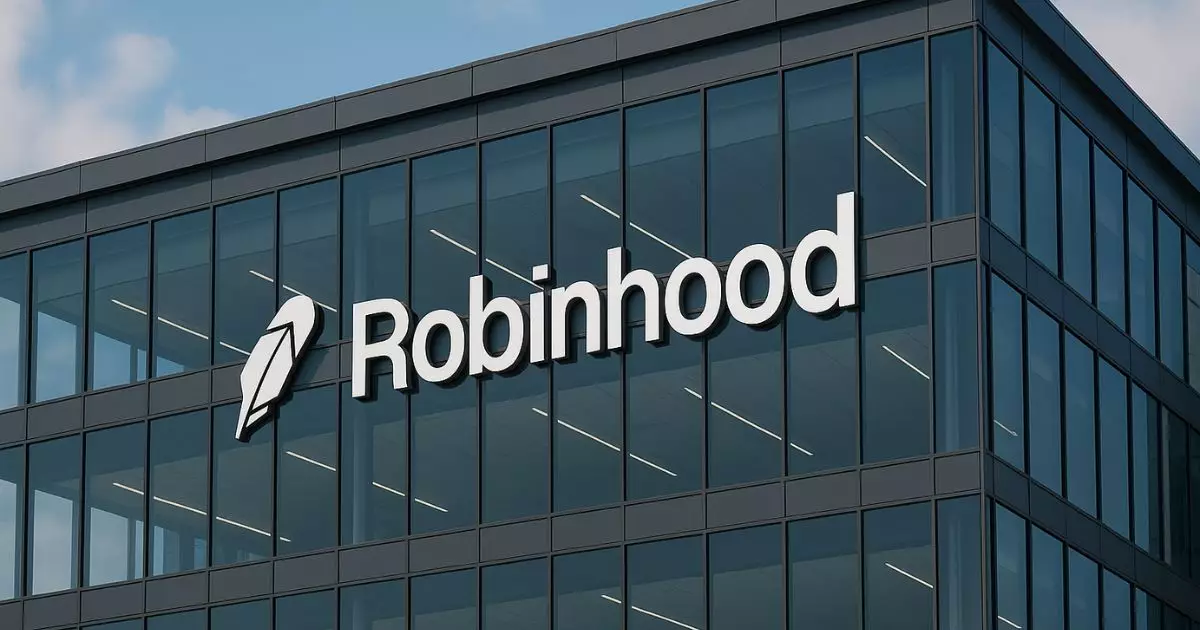In a significant move that could reshape the financial landscape, Robinhood has put forth an ambitious proposal to the U.S. Securities and Exchange Commission (SEC), advocating for a robust regulatory framework for tokenized real-world assets (RWAs). Envisioning a world where digital tokens seamlessly represent traditional financial instruments—such as equities, bonds, and real estate—Robinhood’s 42-page filing suggests a vast potential market worth a staggering $30 trillion. Yet, the question arises: can a bold vision overcome the inertia and complexities of existing regulatory environments?
The underlying premise of Robinhood’s proposal is simple yet profoundly revolutionary. By establishing a cohesive legal infrastructure, the company aims to eliminate the fragmentation currently plaguing the realm of RWA tokenization. Currently, these assets operate in silos, hindered by isolated pilots and regulatory sandboxes that fail to provide the necessary framework for growth. Robinhood argues that the time has come to unify this system under a standardized compliance model that empowers broker-dealers to issue and trade tokenized securities without the cumbersome overhead of parallel systems.
A Critique of Existing Structures
While Robinhood’s aspirations are commendable, the reality of regulatory change is fraught with complications. The SEC has long been viewed as a conservative entity, often slow to adapt to the evolving landscape of finance and technology. Past experiences suggest that the regulatory approval process could extend for years, if not decades. In this context, Robinhood’s filing may serve as more of a litmus test for the SEC’s willingness to accept innovation in financial markets rather than an immediate pathway to change.
Moreover, the traditional finance sector has historically resisted disruptive innovations, often viewing them as threats rather than opportunities. This cultural hesitance poses a significant obstacle to Robinhood’s vision. The company’s proposal calls for a new platform named the Real World Asset Exchange (RRE), integrating off-chain trade matching with on-chain settlement. However, whether traditional financial players, already entrenched in their ways, will embrace such significant alterations remains an open question.
Compliance in a New Era
Importantly, Robinhood places significant emphasis on compliance within its proposal, advocating for strong know-your-customer (KYC) and anti-money-laundering (AML) practices through partnerships with firms like Jumio and Chainalysis. This strategic focus on regulatory adherence could potentially facilitate buy-in from wary institutional stakeholders. The assurance that tokenized assets would not fall under ambiguous classifications as derivatives or synthetic instruments, but rather be recognized as direct reflections of traditional financial products, also positions Robinhood favorably.
However, the concern that these regulatory mechanisms may create additional friction in a market that thrives on speed and accessibility is valid. While compliance is essential for investor protection, too rigid a framework could stifle innovation and discourage participation from smaller players in the market.
The Road Ahead for Tokenization
If effectively executed, Robinhood’s proposal could pave the way for broader institutional adoption of tokenized assets, ultimately creating a more inclusive financial landscape. However, the real challenge lies not just in securing regulatory approval but in demonstrating the practical utility of this novel system. Institutional participation hinges on the ability to showcase a platform that operates efficiently and delivers tangible benefits to users.
The potential for rapid asset settlement and enhanced market efficiency presents an enticing value proposition. Yet, stakeholders must recognize that any shift in the regulatory framework will require coordinated effort and advocacy from various corners of the industry. The question is whether Robinhood can rally sufficient support to see its vision come to fruition, altering the landscape of finance for the better.
Robinhood stands at a pivotal moment, championing a cause that can redefine traditional finance. Its proactive approach in addressing the regulatory framework around tokenized RWAs positions it as a frontrunner in the race toward a more integrated and dynamic financial ecosystem. However, the path ahead is fraught with challenges that demand not only innovative thinking but also strategic collaboration across the financial sector.


Leave a Reply